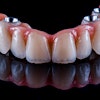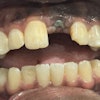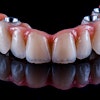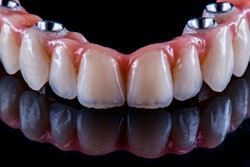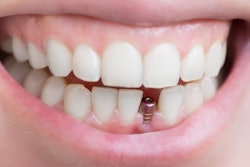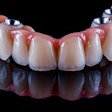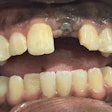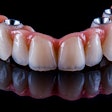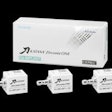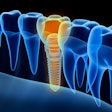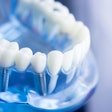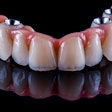
Early dental implant failure may be associated with an antibiotic allergy and prosthesis length. The new research will be presented at the International Association for Dental, Oral, and Craniofacial Research (IADR) General Session & Exhibition.
Patients with self-reported penicillin allergies, as well as those with shorter implants measuring less 10 mm, may be notably correlated with early implant failure, according to a research poster that Dr. Jaffer Ahmed Shariff of Touro University College of Dental Medicine in New York, will present at IADR, which is being held March 13-16 in New Orleans.
"(Penicillin allergy and implant length) emerged as significant factors, confirmed in both backward and forward selection models," Shariff wrote.
To investigate possible risk factors associated with the early failure of an implant that was placed by a dental specialist using a fully guided surgical protocol and a single implant system, electronic health records (EHRs) at a dental school in the U.S. were reviewed. Patient demographics, their medical and dental history, medication history, and implant surgery data were extracted from the EHRs. Then, they underwent univariate and multivariate conditional logistic regression analysis using backward and forward selection methods in this retrospective, nested case control study.
Between August 2018 and December 2022, more than 2,000 implants were placed, yielding an approximate 3% failure rate. For this study, there were 69 cases of early implant failure that were matched with 69 controls.
Multivariate analysis revealed that a penicillin allergy (adjusted odds ratio [aOR]: 4.3, 95% confidence interval [CI]: 1.4 to 13.1, p = 0.011) and implant length (aOR [11.5-13 mm (ref) vs.10 mm]: 3.0, 95% CI: 1.1 to 8.1, p = 0.027) emerged as significant factors for early failure of dental implants, according to the research.

